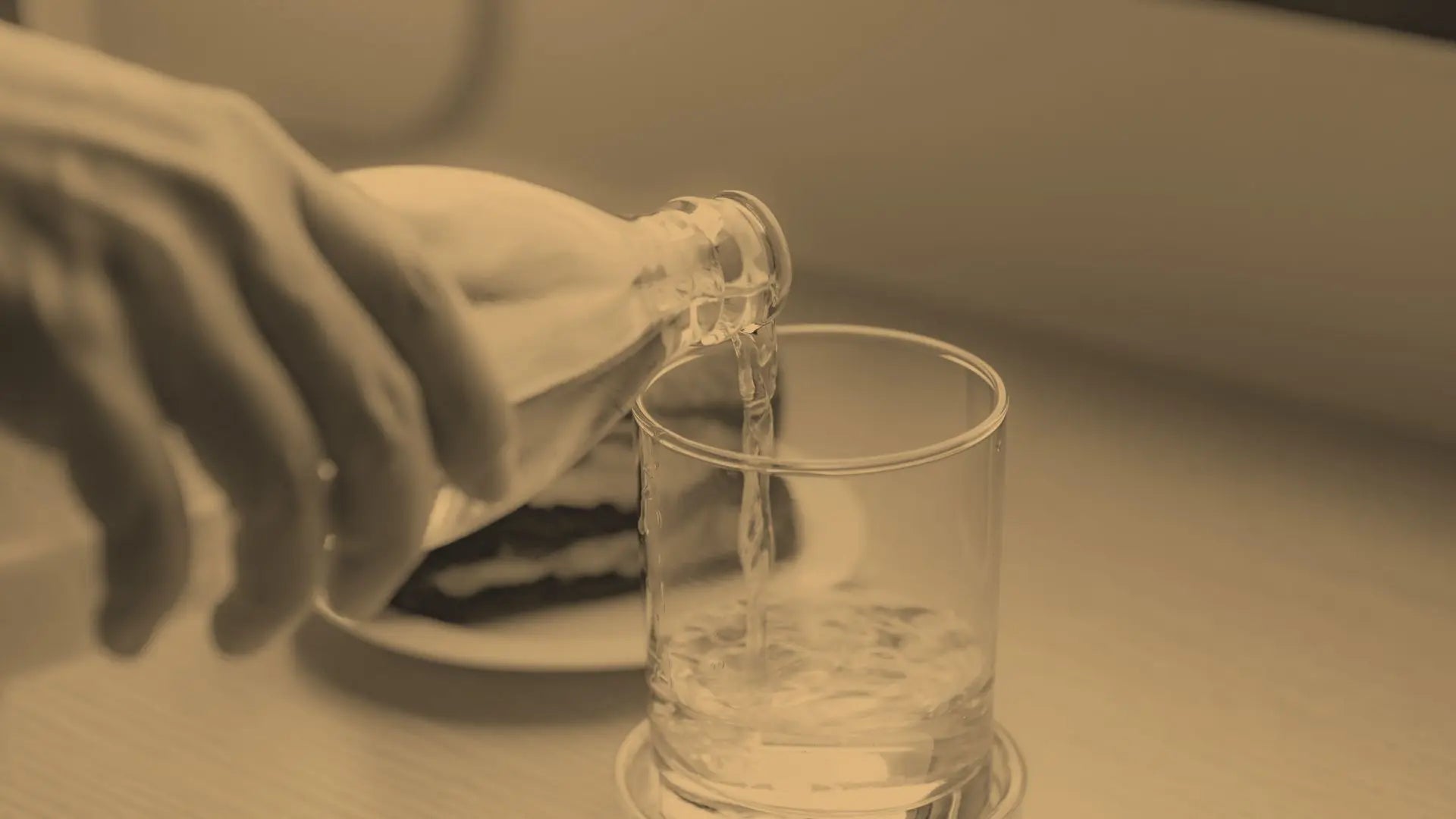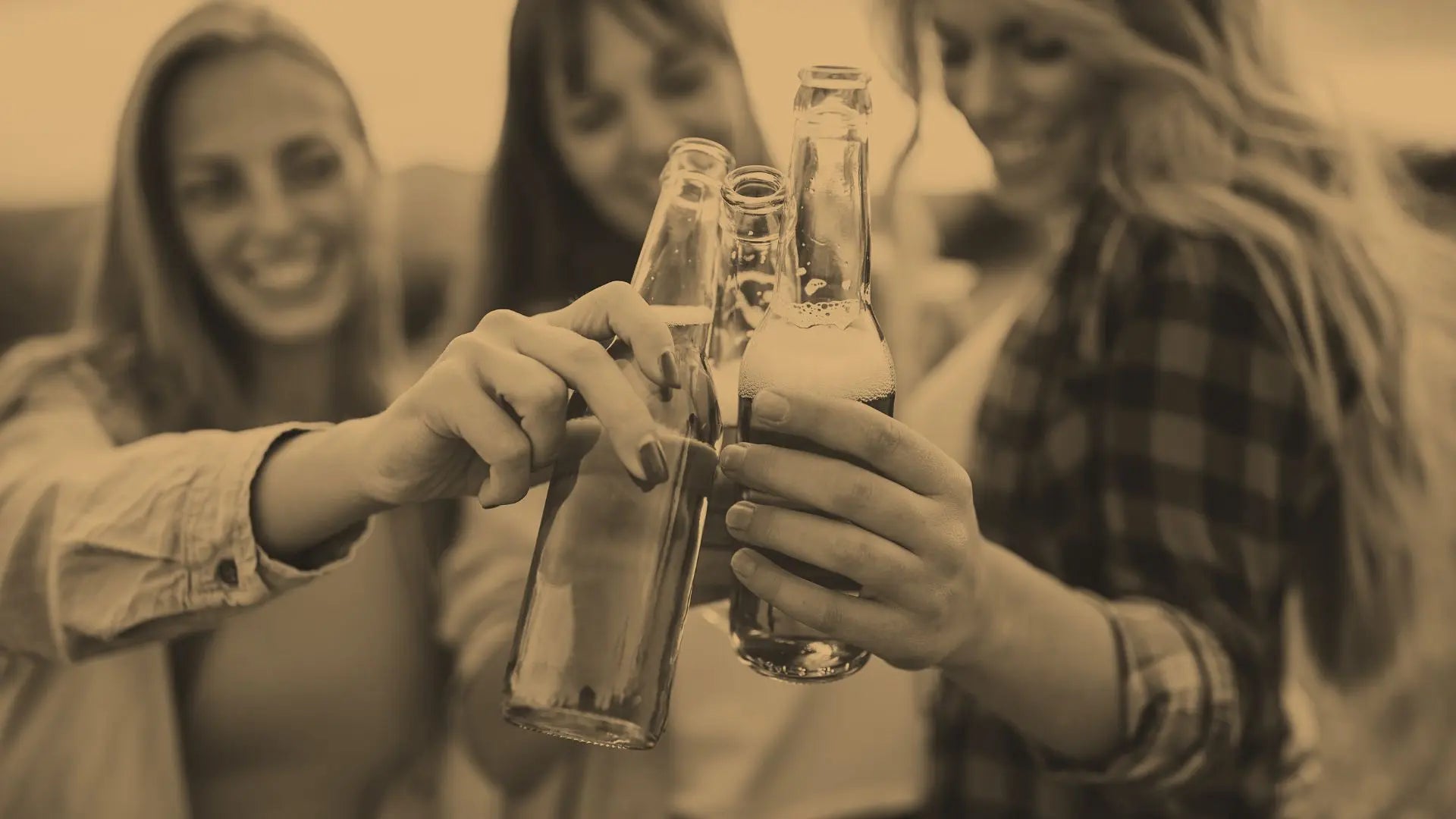
Hangovers & Women’s Blood Pressure: What You Need to Know
Hangovers cause more than symptoms like headaches and nausea (which are generally worse for women than men). Because they raise blood pressure, they can also have a real impact on women’s cardiovascular health. Keep reading to learn how and why.
Drinking Increases Women’s Blood Pressure
Australian researchers have found that having only two drinks per day can still raise women’s blood pressure to the point that they could be at risk for hypertension.
Earlier studies had already shown that men’s blood pressure increases with alcohol consumption, but previous studies on this topic in women had been inconclusive.
However, in this trial, women who consumed 14 to 21 servings of red wine per week had higher blood pressure than when they were drinking less or consuming non-alcoholic wine. Their conclusion based on these results was that “for healthy premenopausal women, drinking two to three glasses of red wine per day does increase blood pressure, and the effect is similar to that found previously among men.”
According to Dr. Barbara J. Turner, director of the Research to Advance Community Health (ReACH) Center at the University of Texas Health Science Center San Antonio, “If (women) are not drinking within national guidelines when drinking (no more than seven drinks in a week and three on any day) they should cut down, switch to non-alcoholic drinks after reaching this level.”
Implications for Cardiovascular Health
The fact that drinking alcohol increases blood pressure has major implications for long-term cardiovascular health—and particularly for risk of heart disease.
According to Dr. Turner, “It is worth paying attention to the long term effects of higher blood pressure levels because hypertension is the most common cause of heart disease.”
Why Does Alcohol Raise Blood Pressure?
Toni Golen, MD, Editor in Chief of Harvard Women’s Health Watch, writes that drinking increases the levels of a hormone called renin in our blood, causing narrowing of the blood vessels. Renin can also decrease urine output. Together, these two effects increase blood pressure.
Dr. Golen warns, “The more often someone drinks, the more likely the habit will prod blood pressure readings beyond normal levels.”
Pre- and Post-Alcohol Supplements
If you’re at all concerned about the effects alcohol might be having on your blood pressure, the most effective solution is to reduce your alcohol consumption.
But when you do decide to drink in moderation, you can also give your body an extra boost with supplements that support its ability to process and recover from alcohol consumption.
Before Drinking: Take Capsulyte’s PREGAME
PREGAME is formulated with evidence-based ingredients that support the body in processing alcohol:
- N-acetyl cysteine, which can reduce post-drinking symptoms
- Siliphos®, a compound derived from milk thistle that may protect the liver against alcoholic cirrhosis
- DHM, an anti-inflammatory and antioxidant compound
- Clovinol®, an antioxidant that may reduce negative post-drinking feelings by 55 percent
After Drinking: Take Capsulyte’s HYDRATION
Alcohol is a diuretic, which is one of the main reasons it causes hangovers—it contributes to dehydration. That’s also why one of the best ways to reduce hangover symptoms is by focusing on hydrating your body.
In addition to plain water, replenish electrolytes, vitamins, and minerals with HYDRATION. It contains Hydra 4G™, an optimal blend of the essential minerals sodium, potassium, magnesium, and calcium. It also contains:
- B vitamins: Support neurological function, energy metabolism, and blood cell formation
- Liposomal Pureway C™: Antioxidant and immune support
- Zinc: Immune support
Frequently Asked Questions About Alcohol and Women’s Blood Pressure
Does alcohol raise women’s blood pressure?
Yes. Research shows that even two drinks per day can raise women’s blood pressure enough to increase the risk of hypertension.
Are hangovers worse for women than men?
On average, women have lower levels of the enzyme ADH, less body water, and higher body fat, which means alcohol stays in the body longer and raises blood alcohol content—making hangovers more severe.
Why does alcohol raise blood pressure?
Alcohol increases levels of renin, a hormone that narrows blood vessels and decreases urine output. This combination causes blood pressure to rise.
What are the long-term risks of high blood pressure from drinking?
Persistent high blood pressure is one of the leading causes of heart disease, so frequent alcohol-related increases can raise cardiovascular risk over time.
What can women do to reduce alcohol’s impact on blood pressure?
The best solution is to drink less. When drinking in moderation, strategies like staying hydrated, pacing intake, and using antioxidant and hydration supplements can support recovery.
Which supplements can help before and after drinking?
Capsulyte’s PREGAME (with NAC, Siliphos®, DHM, and Clovinol®) may support alcohol processing before drinking. Afterward, HYDRATION (with Hydra 4G™, B vitamins, vitamin C, and zinc) can help restore fluids and electrolytes.


